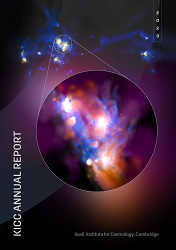
Gravitational-wave (GW) astronomy is an emerging branch of observational astronomy which aims to use gravitational waves to collect observational data about objects such as neutron stars and black holes, events such as supernovae, and processes including those of the early universe shortly after the Big Bang.
KICC researchers are involved in the Advanced LIGO experiment, which has recently achieved the first direct detection of gravitational waves. Activities focus on theoretical work aimed at predicting the GW signal from the various classes of sources and on developing the statistical tools for the detection and analysis of GW experiments (such as LIGO).
We are contributing through statistical analysis of the LIGO GW signals.
Additional activities in the area of GW are, both within KICC and more broadly in Cambridge are:
- Simulations of supermassive black holes mergers and expectations for LISA.
- Prediction and search of gravitational waves associated with supermassive black hole mergers through the Pulsar Timing Array.
- Search for primordial gravitational waves through CMB B-modes polarization.
- Search and analysis of gravitational waves electromagnetic counterparts.
Current Kavli based researchers involved in this area are:
- Anthony Lasenby
- Anthony Challinor
- George Efstathiou
- Mike Hobson
- Ulrich Sperhake
- Paul Shellard
- Michalis Agathos
Researchers previously based in this Kavli group:
- Lindley Lentati


